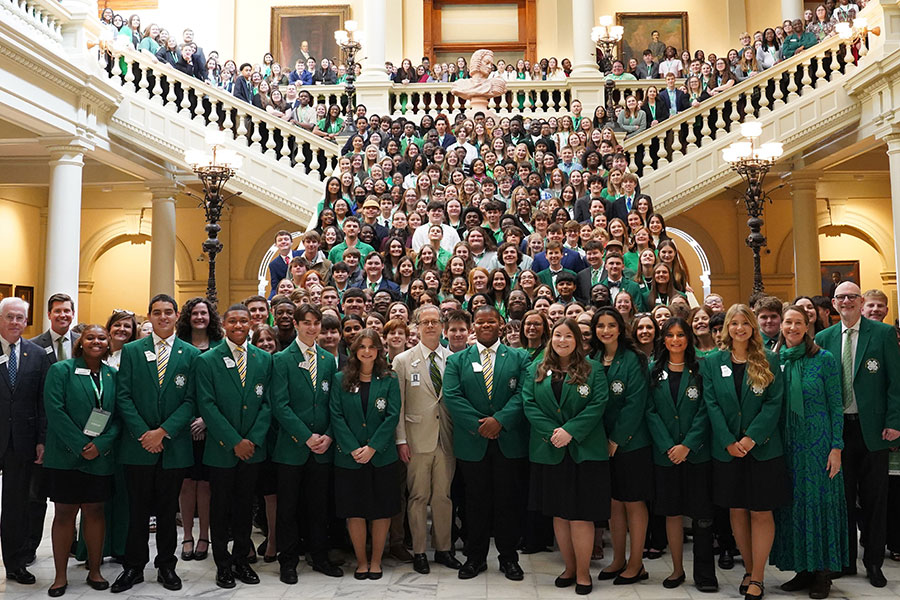A University of Georgia agricultural delegation, after making a historic trip to North Korea in October, hopes to host North Korean scientists this spring.
The researchers, from the UGA College of Agricultural and Environmental Sciences, were the first U.S. academic delegation to visit North Korea since the country closed its doors during the Korean War.
Cycles of drought and flooding have brought widespread famine to North Korea. The UGA researchers visited the country with hopes of helping scientists there solve some of their agricultural problems. They hoped, too, to begin a cultural exchange that would benefit both countries.
Joint Research Projects May Develop
Ed Kanemasu, coordinator of CAES international programs and a member of the delegation, said the trip may lead to collaborative research projects between UGA and two North Korean organizations: the Academy of Agricultural Sciences and Pyongyang Agricultural University.
"Our group met for three days with the vice-president of the academy and several of his institute directors," Kanemasu said. "They acknowledged the poor agricultural conditions and need for assistance from the University of Georgia."
Kanemasu said the scientists discussed mutual areas of interest. In particular, they examined sweet potato and potato production, plant protection, soil and water management, biotechnology and poultry management.
To define the areas of research collaboration, CAES Dean Gale Buchanan and Academy Vice-President Sam Ryong Kim signed a letter of intent. Buchanan invited a delegation from the academy to visit the UGA CAES campus this spring.
"The purpose of the visit is to lay the foundation for projects and long-term visits," Kanemasu said. "It was agreed that we should begin seeking funding opportunities for our collaboration from federal agencies and the private sector."
While in North Korea, the UGA delegation also met with scientists from Pyongyang Agricultural University. Their scientists were also interested in working with UGA scientists, but made no definite commitments.
Planning and Funding are Next Steps
The UGA scientists' next step will be to develop a strategic plan for the collaborative research projects and seek funding. "This is a timely activity," Kanemasu said, "and it's important that we proceed aggressively."
During their five-day visit in October, the UGA group was hosted by the Asia-Pacific Peace Committee. The APPC serves as intermediaries between North Korea and the Western world.






